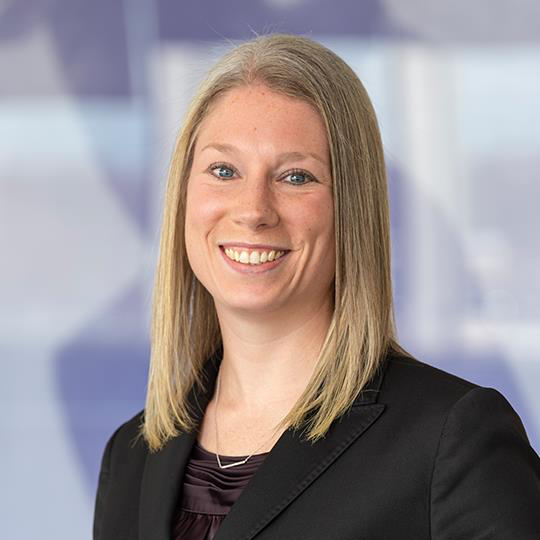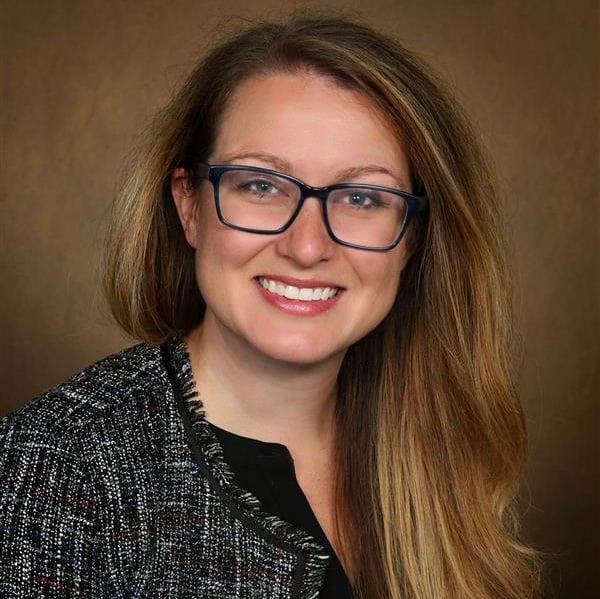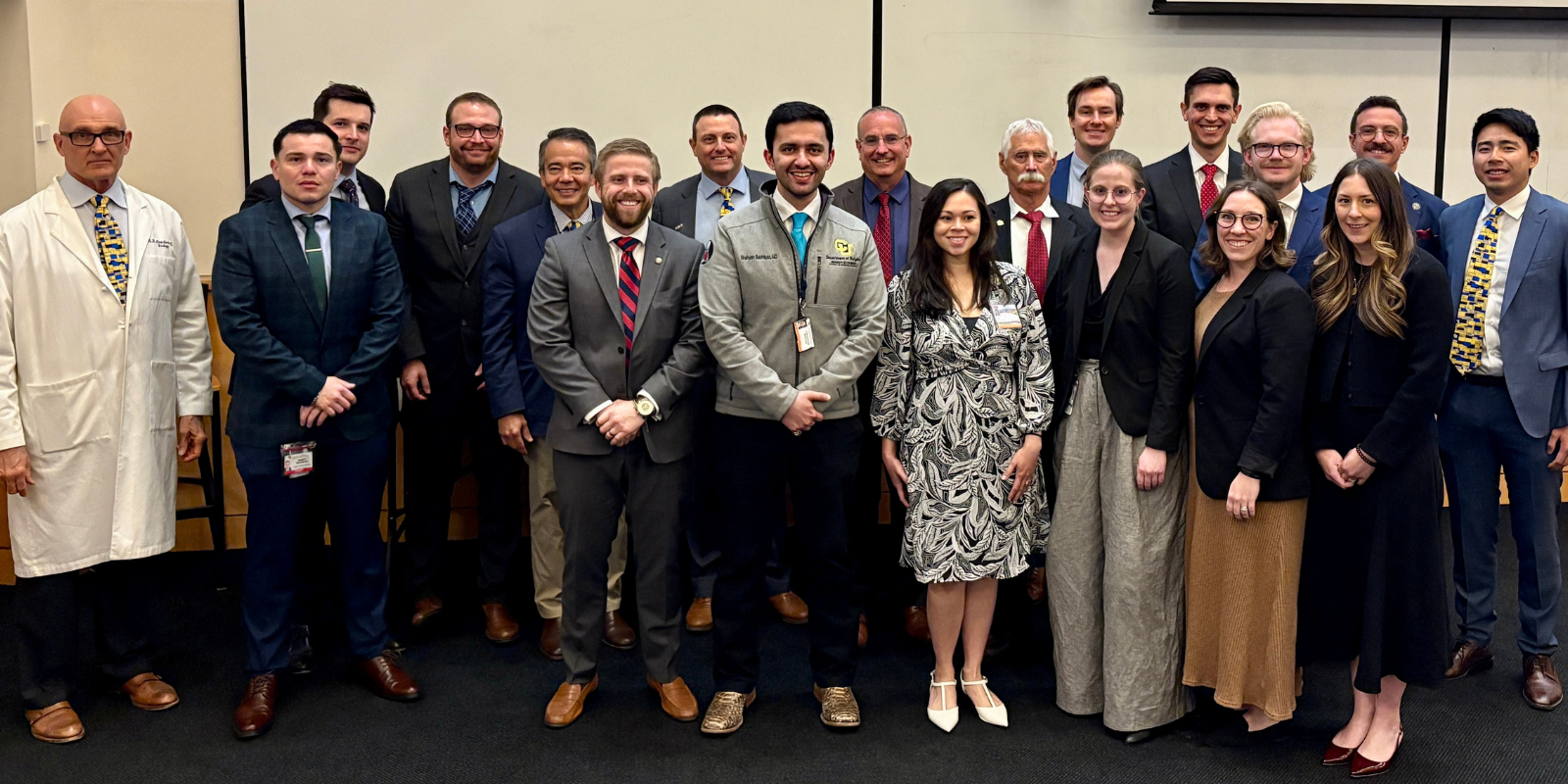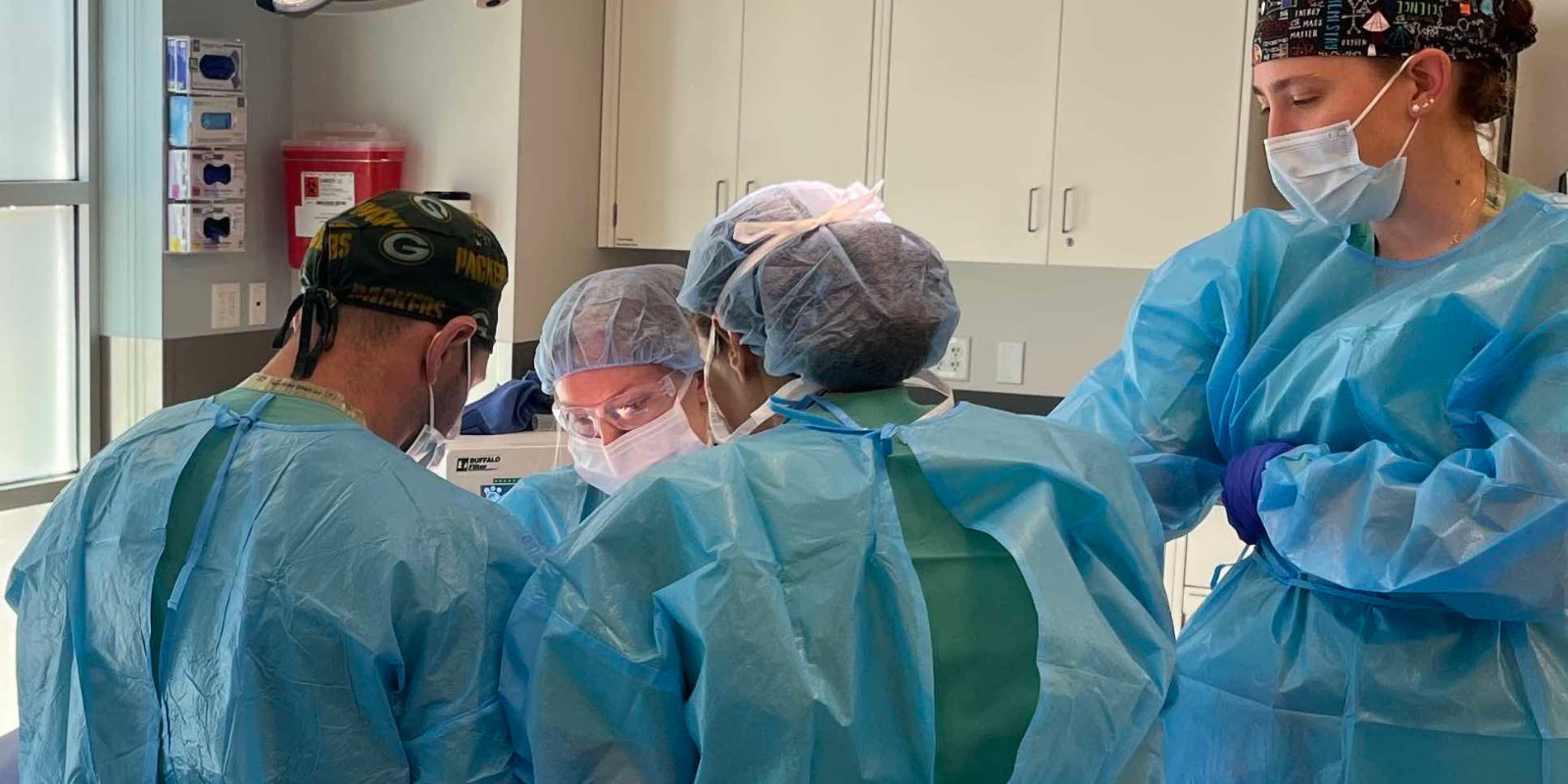Their work developing a set of guidelines for the general surgery residency program in the University of Colorado Department of Surgery led faculty members Nicole Christian, MD, MSCS, and Shannon Acker, MD, to write an editorial on how important it is for surgery training programs to support the young parents in their ranks.
“Evidence documents the risks medical culture poses to physicians who wish to have children,” they write in the article, which appeared this month in the Journal of the American Medical Association. “Pregnancy-related complications, including miscarriage, preterm labor, preeclampsia, and infertility, occur in physicians at rates that exceed the population average. Medical training coincides with peak childbearing years, a fact often cited to contribute to the known delay in pursuing pregnancy among physicians. In combination with high stress and long hours of medical training, the delay in attempts to conceive contributes to higher rates of infertility.”
While the Accreditation Council for Graduate Medical Education recently began requiring a minimum of six paid weeks off for medical, parental, and caregiver leave among medical residents nationwide, there are other regulations in place at the national level that make it difficult for young parents, particularly mothers, to fully engage in their medical training, Christian and Acker say.
“As an example, fellowship start dates are typically either July 1 or August 1,” Christian says. “If a trainee wanted to or needed to take extra time because of a complicated pregnancy or a newborn who had significant medical issues, they would have to delay fellowship by a year. In the context of the amount of medical debt people accrue and how long medical training takes, that type of delay can feel really prohibitive.”
Support after childbirth
Parental leave for childbirth is a good start, Christian and Acker say, but equal attention needs to be paid to new parents once they return to their training.
“The time you take after you have a baby is the keystone benefit of any policy, but we are looking at all the other ways we can support our trainees,” Christian says. “Not just trainees who are pregnant, but trainees whose partners are having a child, or those who adopt a child. How do we support them when they have to come back to work?”
In the editorial, the CU surgery faculty members call for the creation of a culture that supports early-career physicians as they acquire the knowledge and skills necessary to thrive.
“Written policies should include explicit support of trainees attending routine prenatal care or fertility appointments, call limitations for pregnant residents in the third trimester and for the first three months after the birth or adoption of a child for all new parents (including the nonchildbearing parent), rotation schedules rearranged to support healthy fetal development, and elimination of a culture that calls for trainees to ‘make up’ for missed nights on call,” they write.
Changing mindsets
Christian and Acker also advocate for the use of faculty mentors who can help expecting parents navigate the complexities of a medical or surgical career with a young family.
“The female surgeons who were our mentors 10 or 15 years ago, when we were training, their mindset was very much, ‘I can’t let anybody know that I’m a woman. I just have to fit in and make sure that everybody knows I can do this job just as well as a man,’” Acker says. “I think we’ve finally reached a critical mass where we no longer have to approach our jobs that way. We finally have evidence to say, ‘This is risky.’ What we’ve been doing is dangerous to our health, and it’s dangerous to the health of our children and our families.”
Acker remembers that when she was an intern, a second-year resident got pregnant, to the ire of many of her fellow trainees.
“People were so mean to her. They thought it was so inconsiderate that she would do that,” she says. “Now, finally, we’ve changed the culture enough to say, ‘Surgical training lasts for 10 years, and those are the 10 years where you’re most able to have children.’ We’ve become more accepting, like, ‘Oh, you want to have a baby? That’s great. How can we help you?’”
Spreading the word
Hoping to share the lessons they learned developing the CU surgery training guidelines as well as writing the editorial, Acker, Christian, and others on their team created a toolkit for all the programs in graduate medical education at CU. The document outlines the national policies, as well as the policies specific to the University.
The amount of weeks of parental leave is standardized across the country. Christian explains that the thing that makes the CU Department of Surgery's' policy special is that it includes explicit and proactive communication of medically appropriate available adjustments to rotation schedules and call, offers limits on call in the third trimester for pregnant trainees and all new parents after birth, and provides direct mentorship for all expecting parents.
“Our hope is that by looking at our own program, we’ll be able to show that these policies are highly tolerable by everybody,” Christian says. “Of course the person who’s becoming a parent has a lot of stake in this, but it turns out this is something that everybody supports, even trainees who aren’t having children.
“Since the article was published online, we've gotten emails from emeritus faculty members and medical students from across the world thanking us for this,” she adds. “Having a family is a really important part of many people’s lives, and it’s important to acknowledge that and figure out how to make that work so that people can have long, sustained, fulfilling careers.”






